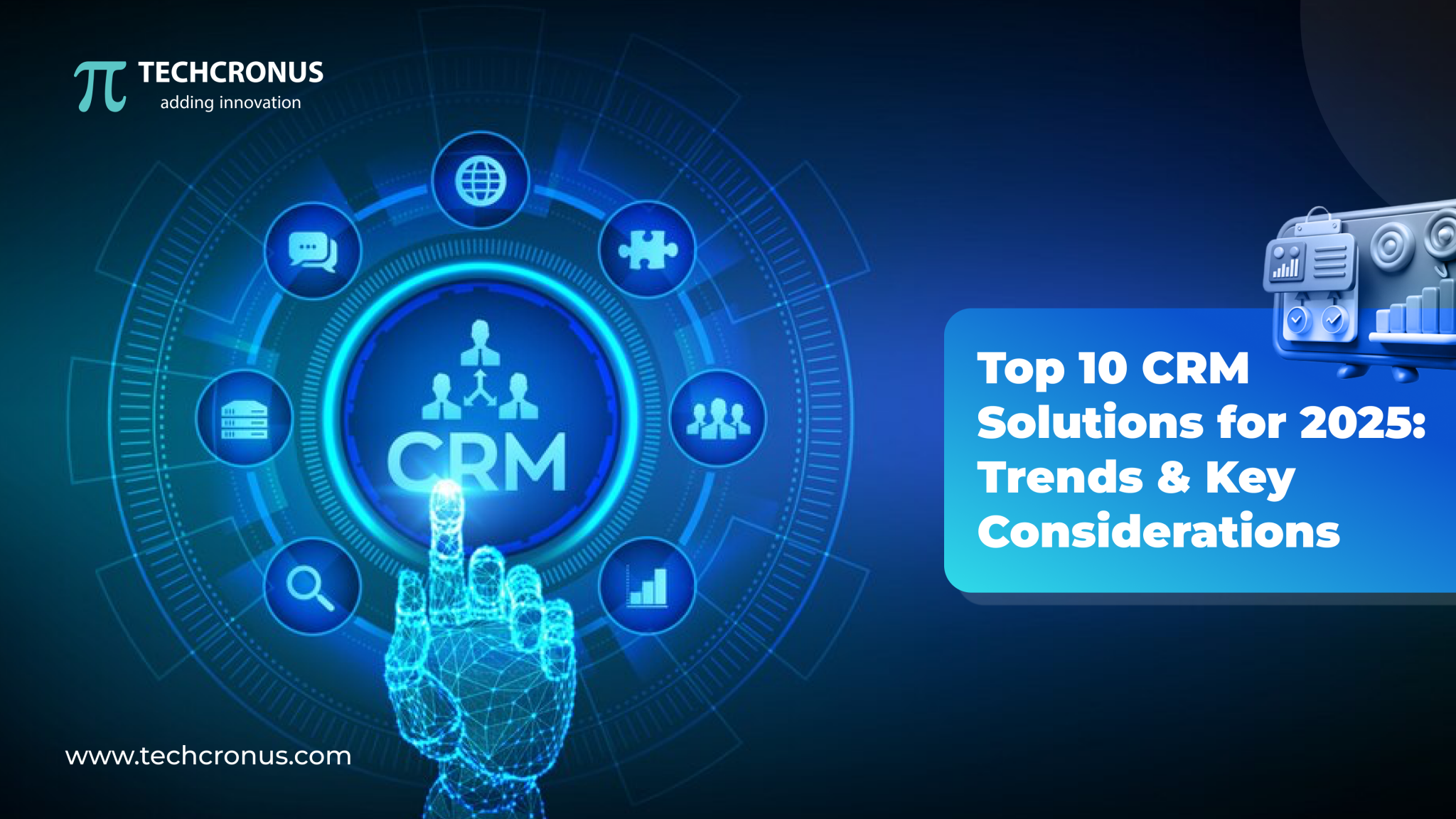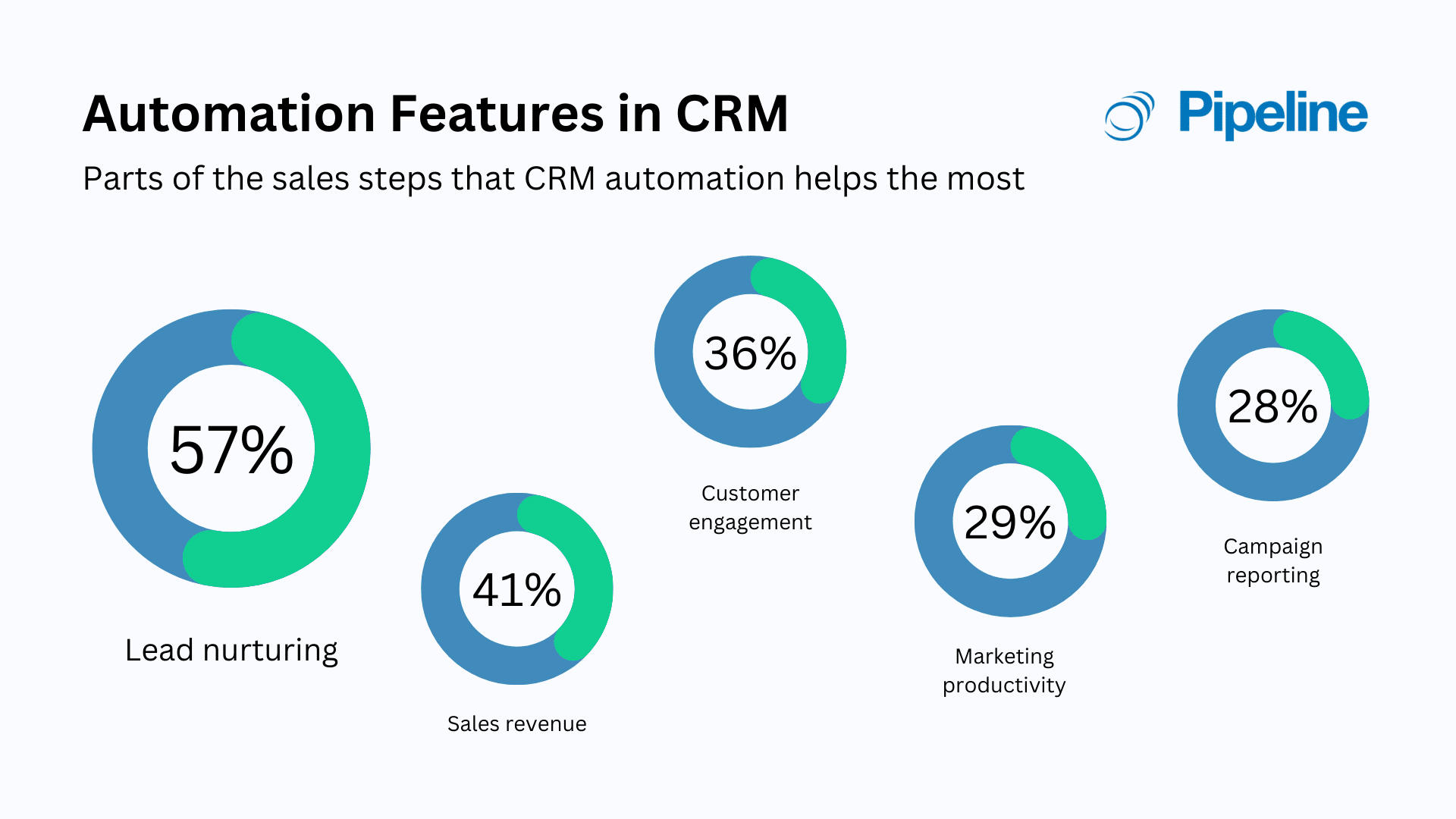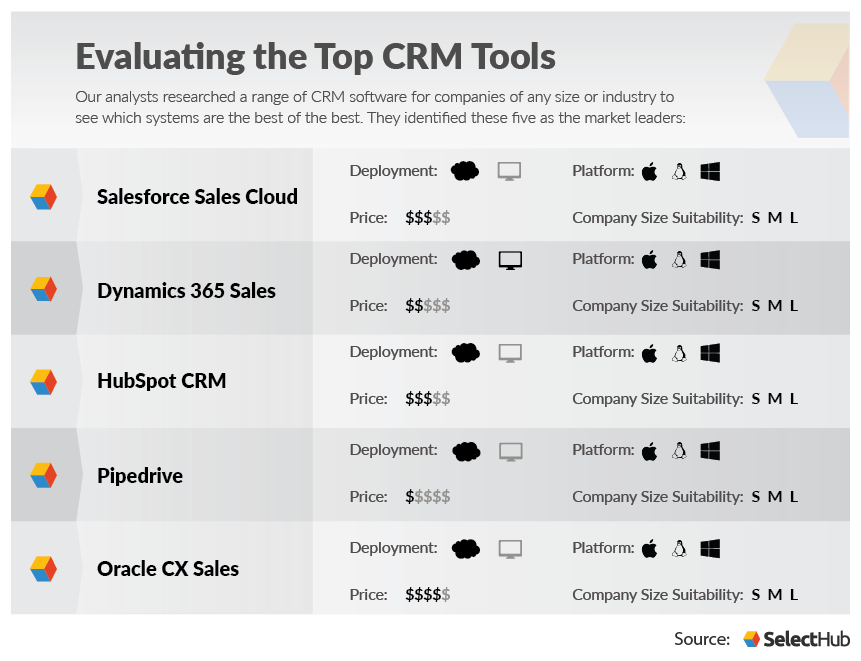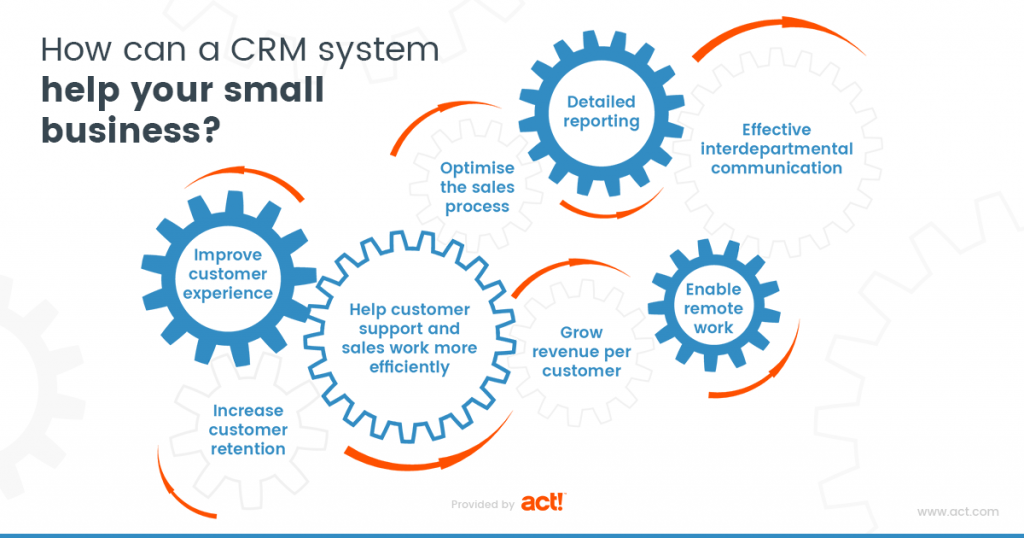Small Business CRM Showdown: Choosing the Best CRM for Your Growing Empire
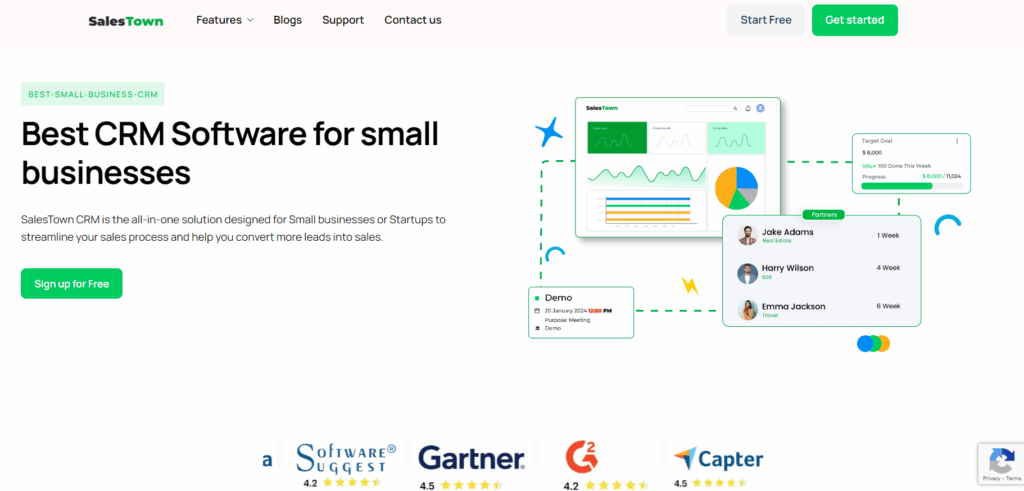
Small Business CRM Showdown: Choosing the Best CRM for Your Growing Empire
Running a small business is a wild ride. You’re the CEO, the marketing guru, the customer service rep, and the janitor, all rolled into one. Juggling all those roles can feel like trying to herd cats while riding a unicycle. That’s where a Customer Relationship Management (CRM) system swoops in to save the day. A CRM is more than just a contact list; it’s your central hub for everything customer-related, streamlining your operations and helping you build stronger, more profitable relationships. But with so many options out there, choosing the right CRM for your small business can feel overwhelming. This comprehensive comparison will break down the leading contenders, helping you navigate the CRM landscape and find the perfect fit for your unique needs.
Why Your Small Business Needs a CRM
Before we dive into the comparison, let’s talk about why a CRM is essential for small business success. In the early days, you might be able to manage customer interactions with spreadsheets and sticky notes. But as your business grows, that approach quickly becomes unsustainable. A CRM offers a multitude of benefits, including:
- Improved Customer Relationships: A CRM centralizes all your customer data, providing a 360-degree view of each customer. This allows you to personalize interactions, anticipate their needs, and provide exceptional customer service.
- Increased Sales: By tracking leads, managing the sales pipeline, and automating follow-ups, a CRM helps you close more deals and boost your revenue.
- Enhanced Efficiency: Automate repetitive tasks, such as data entry and email marketing, freeing up your time to focus on more strategic initiatives.
- Better Data Analysis: Gain valuable insights into your customers, sales performance, and marketing effectiveness with detailed reports and analytics.
- Streamlined Communication: Keep everyone on the same page with a centralized platform for all customer communication, including emails, calls, and social media interactions.
In short, a CRM empowers you to work smarter, not harder, fostering growth and building a loyal customer base. Now, let’s get to the good stuff: the CRM comparison.
Top CRM Contenders for Small Businesses
We’ll be evaluating several popular CRM systems, considering factors such as features, pricing, ease of use, and customer support. The following are some of the most well-regarded CRM options for small businesses:
- HubSpot CRM: The free CRM powerhouse.
- Zoho CRM: A feature-rich and affordable option.
- Salesforce Sales Cloud: The industry giant, offering extensive customization.
- Pipedrive: A sales-focused CRM with a user-friendly interface.
- Freshsales: An AI-powered CRM with a focus on sales automation.
Let’s take a closer look at each of these contenders.
HubSpot CRM: The Free CRM King
HubSpot CRM has become a go-to choice for many small businesses, and for good reason: it’s free! But don’t let the price tag fool you; HubSpot CRM is packed with features that can significantly benefit your business. While the free version has limitations, it’s a fantastic starting point, and the paid versions offer even more robust functionality.
Key Features:
- Contact Management: Store and organize all your contact information in one place.
- Deal Tracking: Manage your sales pipeline and track deals from start to finish.
- Email Marketing: Send personalized emails and track their performance (limited in the free version).
- Sales Automation: Automate repetitive tasks, such as sending follow-up emails.
- Reporting and Analytics: Gain insights into your sales performance with detailed reports.
Pros:
- Free to use: A fantastic option for startups and budget-conscious businesses.
- User-friendly interface: Easy to learn and navigate, even for CRM novices.
- Integrations: Integrates seamlessly with other HubSpot tools and a wide range of third-party applications.
- Excellent support: Access to HubSpot’s extensive knowledge base and helpful community.
Cons:
- Limited features in the free version: Some advanced features, such as advanced reporting and marketing automation, are only available in the paid versions.
- Scalability: While HubSpot CRM can handle growth, larger businesses might eventually outgrow the platform.
Ideal for: Startups, small businesses looking for a free CRM, and businesses that want a user-friendly platform with strong integration capabilities.
Zoho CRM: Feature-Rich and Affordable
Zoho CRM offers a compelling balance of features and affordability. It’s a popular choice for small and medium-sized businesses that need a comprehensive CRM solution without breaking the bank. Zoho CRM offers several pricing tiers, making it scalable as your business expands. The free plan is more robust than HubSpot CRM’s free plan.
Key Features:
- Contact Management: Manage contacts, track leads, and segment your audience.
- Sales Automation: Automate sales workflows, such as lead assignment and follow-up emails.
- Marketing Automation: Create and manage email campaigns, track website activity, and nurture leads.
- Workflow Automation: Automate tasks and processes based on predefined rules.
- Reporting and Analytics: Generate detailed reports and gain insights into your sales performance.
- Integrations: Integrates with a wide variety of third-party applications, including popular productivity tools.
Pros:
- Feature-rich: Offers a comprehensive suite of features, including sales automation, marketing automation, and workflow automation.
- Affordable pricing: Provides several pricing tiers to fit different budgets.
- Highly customizable: Tailor the CRM to your specific needs with extensive customization options.
- Strong integrations: Integrates with a wide range of third-party applications.
Cons:
- Steeper learning curve: The abundance of features can make it slightly more complex to learn than some other CRMs.
- Customer support: Some users have reported issues with customer support responsiveness.
Ideal for: Small and medium-sized businesses looking for a feature-rich, affordable CRM solution with strong customization options.
Salesforce Sales Cloud: The Enterprise Powerhouse (But Can Be Scaled Down)
Salesforce is the industry leader, known for its robust features and extensive customization options. While it’s often associated with large enterprises, Salesforce Sales Cloud can also be a viable option for small businesses, especially those with complex sales processes or ambitious growth plans. However, be prepared for a higher price tag and a more complex setup.
Key Features:
- Contact Management: Manage contacts, track leads, and segment your audience.
- Sales Automation: Automate sales workflows, such as lead assignment, email follow-ups, and quote generation.
- Sales Forecasting: Forecast sales and track performance against targets.
- Reporting and Analytics: Generate detailed reports and gain insights into your sales performance.
- AppExchange: Access a vast marketplace of third-party applications to extend the functionality of your CRM.
- Customization: Highly customizable to meet the specific needs of your business.
Pros:
- Extensive features: Offers a comprehensive suite of features for sales, marketing, and customer service.
- Highly customizable: Tailor the CRM to your specific needs with extensive customization options.
- Scalability: Designed to handle the needs of businesses of all sizes.
- Large ecosystem: Access a vast marketplace of third-party applications and a large user community.
Cons:
- Expensive: Can be costly, especially for small businesses.
- Complex implementation: Requires more time and expertise to set up and configure.
- Steeper learning curve: The sheer number of features can be overwhelming for new users.
Ideal for: Small businesses with complex sales processes, ambitious growth plans, and the budget to invest in a comprehensive CRM solution.
Pipedrive: The Sales-Focused CRM
Pipedrive is a CRM that’s specifically designed for sales teams. Its user-friendly interface and visual sales pipeline make it easy to track deals, manage leads, and close more sales. If your primary focus is sales, Pipedrive is definitely worth considering.
Key Features:
- Visual Sales Pipeline: Track deals visually through a customizable pipeline.
- Contact Management: Manage contacts, track leads, and segment your audience.
- Deal Tracking: Track deals from start to finish, with detailed information on each deal.
- Email Integration: Integrate with your email provider to track email conversations and send emails directly from Pipedrive.
- Reporting and Analytics: Generate reports on sales performance and track key metrics.
- Automation: Automate repetitive tasks, such as sending follow-up emails and creating deals.
Pros:
- User-friendly interface: Easy to learn and navigate, with a focus on visual sales pipelines.
- Sales-focused features: Designed specifically for sales teams, with features like deal tracking and pipeline management.
- Good value for money: Offers a good balance of features and affordability.
- Integrations: Integrates with a variety of third-party applications.
Cons:
- Limited marketing automation features: Not as strong in marketing automation as some other CRMs.
- Can be limiting for businesses with complex needs: Might not be suitable for businesses with very complex sales processes or a strong need for extensive customization.
Ideal for: Sales-focused small businesses looking for a user-friendly CRM with a strong visual sales pipeline.
Freshsales: AI-Powered for Smarter Sales
Freshsales is another strong contender, especially if you’re looking to leverage the power of AI. It offers a range of features designed to automate sales processes, improve lead qualification, and boost your sales team’s productivity. Freshsales is part of the Freshworks suite of products.
Key Features:
- Contact Management: Manage contacts, track leads, and segment your audience.
- Sales Automation: Automate sales workflows, such as lead assignment and follow-up emails.
- AI-Powered Features: Utilize AI-powered features like lead scoring, deal insights, and sales forecasting.
- Phone Integration: Make and receive calls directly from the CRM.
- Reporting and Analytics: Generate detailed reports and gain insights into your sales performance.
- Integrations: Integrates with other Freshworks products and a variety of third-party applications.
Pros:
- AI-powered features: Leverages AI to automate tasks, improve lead qualification, and provide sales insights.
- User-friendly interface: Easy to learn and navigate.
- Good value for money: Offers a good balance of features and affordability.
- Phone integration: Makes it easy to make and receive calls directly from the CRM.
Cons:
- Can be overwhelming for some users: The number of features might be overwhelming for businesses with simpler needs.
- Limited customization: Not as customizable as some other CRMs.
Ideal for: Sales teams looking for a CRM with AI-powered features to automate sales processes and improve lead qualification.
Choosing the Right CRM: Key Considerations
Selecting the right CRM is a crucial decision. To make the best choice, take the following factors into consideration:
- Your business needs: What are your specific goals for using a CRM? Do you need to focus on sales, marketing, or customer service? Identifying your primary needs will help you narrow down your options.
- Your budget: CRM pricing varies widely. Determine how much you can afford to spend on a CRM, including the cost of the software, implementation, and ongoing maintenance.
- Ease of use: Choose a CRM that’s easy to learn and use. A complex CRM can be time-consuming to implement and might not be adopted by your team.
- Features: Make sure the CRM offers the features you need, such as contact management, sales automation, marketing automation, and reporting.
- Integrations: Check if the CRM integrates with the other tools you use, such as email marketing platforms, accounting software, and project management tools.
- Scalability: Consider your future growth plans. Will the CRM be able to handle your increasing needs as your business expands?
- Customer support: Read reviews and check the customer support options offered by each CRM provider.
Step-by-Step Guide to Choosing Your CRM
Here’s a step-by-step guide to help you choose the right CRM for your small business:
- Define your needs: Identify your specific goals for using a CRM, such as improving customer relationships, increasing sales, or streamlining operations.
- Research your options: Research the different CRM systems available and compare their features, pricing, and reviews. Use the information presented in this article as a starting point.
- Create a shortlist: Narrow down your options to a shortlist of 2-3 CRM systems that meet your needs.
- Request demos: Request demos from the CRM providers on your shortlist to see the software in action and ask questions.
- Test the software: If possible, sign up for free trials or demo accounts to test the software and see how it works for your business.
- Consider the long-term: Think about how your business might grow and how the CRM could support future growth.
- Make your decision: Choose the CRM that best meets your needs and budget.
- Implement the CRM: Implement the CRM system, train your team, and integrate it with your existing tools.
- Monitor and optimize: Continuously monitor your CRM usage and make adjustments as needed.
CRM Implementation: Tips for Success
Once you’ve chosen a CRM, successful implementation is key. Here are some tips to ensure a smooth transition:
- Plan your implementation: Create a detailed implementation plan, including timelines, tasks, and responsibilities.
- Clean your data: Clean up your existing data before importing it into the CRM. This will ensure accurate reporting and avoid errors.
- Train your team: Provide thorough training to your team on how to use the CRM.
- Customize the CRM: Customize the CRM to meet your specific needs, such as creating custom fields and workflows.
- Integrate with other tools: Integrate the CRM with your other tools, such as email marketing platforms and accounting software.
- Monitor and measure results: Track key metrics to measure the success of your CRM implementation.
Beyond the Basics: Advanced CRM Strategies
Once you have a CRM in place, you can explore more advanced strategies to maximize its value:
- Lead Scoring: Implement lead scoring to prioritize the leads that are most likely to convert.
- Workflow Automation: Automate more complex workflows, such as sending personalized emails based on customer behavior.
- Segmentation: Segment your customer base to personalize your marketing and sales efforts.
- Reporting and Analytics: Dive deeper into your data to gain insights into your customers, sales performance, and marketing effectiveness.
- Integrations: Integrate your CRM with even more of your business tools to create a seamless ecosystem.
The Future of CRM for Small Businesses
The CRM landscape is constantly evolving, with new features and technologies emerging all the time. Here are some trends to watch out for:
- AI-powered CRM: AI will continue to play a larger role in CRM, automating tasks, providing insights, and personalizing customer interactions.
- Mobile CRM: Mobile CRM solutions will become even more important, allowing you to access and manage your CRM data from anywhere.
- Focus on customer experience: CRM will be increasingly focused on providing exceptional customer experiences.
- Integration and connectivity: CRM systems will continue to integrate with more and more business tools, creating a seamless ecosystem.
Conclusion: Your CRM Journey Begins Now
Choosing the right CRM is a significant step towards building a thriving small business. By carefully considering your needs, researching your options, and implementing the CRM effectively, you can unlock the power of customer relationship management and drive sustainable growth. Embrace the journey, and watch your business flourish.

